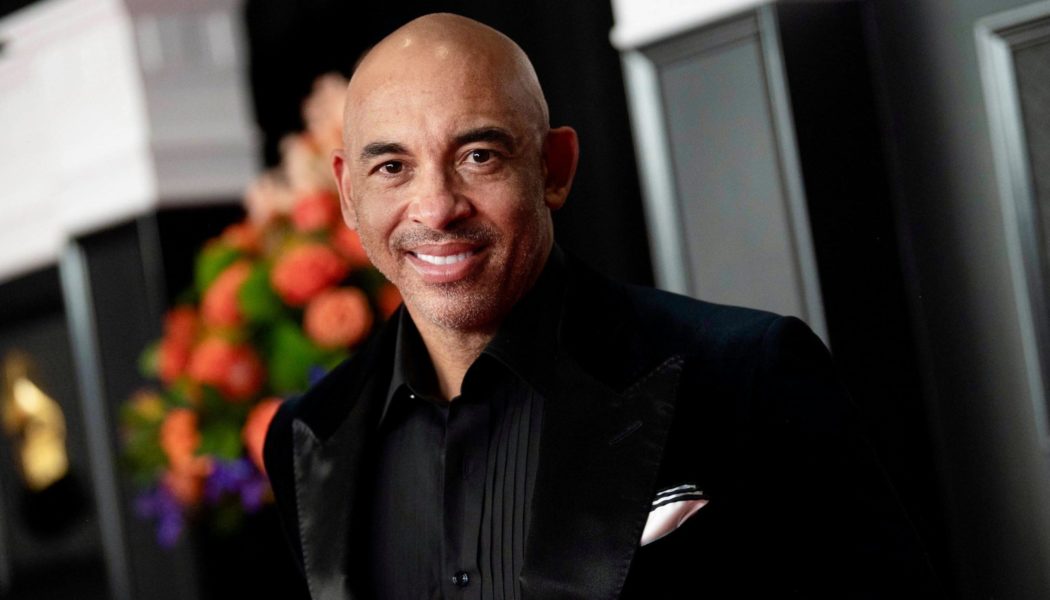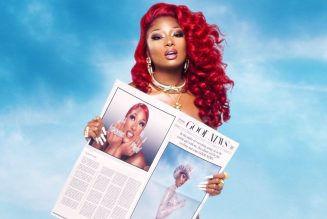Harvey Mason jr. didn’t just visit Africa — he was transformed by it.
In 2022, the Recording Academy CEO visited a number of African countries, where he met with leaders in the local music communities and intently listened to what each had to say.
“Mind-bending. Game-changing. Eye-opening,” Mason jr. said of his trips to Africa. “There’s so much music, so much creativity over there. Africa is the birthplace of, well, everything, but definitely music.”
Accordingly, the universe of sounds coming out of the African continent can’t be boiled down to just those having an international impact today, like Afrobeats or Amapiano. No, every corner of Africa is a fount of brilliant musical offerings. So it’s incumbent on the Recording Academy, the world’s leading community of music professionals, to reflect the momentum happening across Africa.
With this as the engine, the Recording Academy has revealed a thrilling new GRAMMY category in time for the 2024 GRAMMYs: Best African Music Performance.
Announced in tandem with two other exciting, new GRAMMY categories, including Best Alternative Jazz Album and Best Pop Dance Recording, the category elevates all flavors of African music — from Afrobeats to kizomba to Ghanaian drill to South African hip-hop — without regard to borders. Musical excellence from anywhere and everywhere in Africa will be carefully considered in this progressive category.
While this development is a forward-thinking expansion for the Recording Academy, the GRAMMYs, and the international music industry as a whole, the new Best African Music Performance category is the “first step toward a much bigger, more fruitful journey ahead,” Mason jr. tells GRAMMY.com. “And we’re not done as an Academy: We’re making sure that we represent music from that region fairly and accurately.”
Read More: 2024 GRAMMYs: 4 Things To Know About The New Categories & Changes
To celebrate the new category, GRAMMY.com sat down with industry leaders — including Mason jr. — to discuss the story behind the brand-new Best African Music Performance GRAMMY category, its impact on the global music industry, and the future of African music.
These interviews were edited and condensed for clarity and brevity.
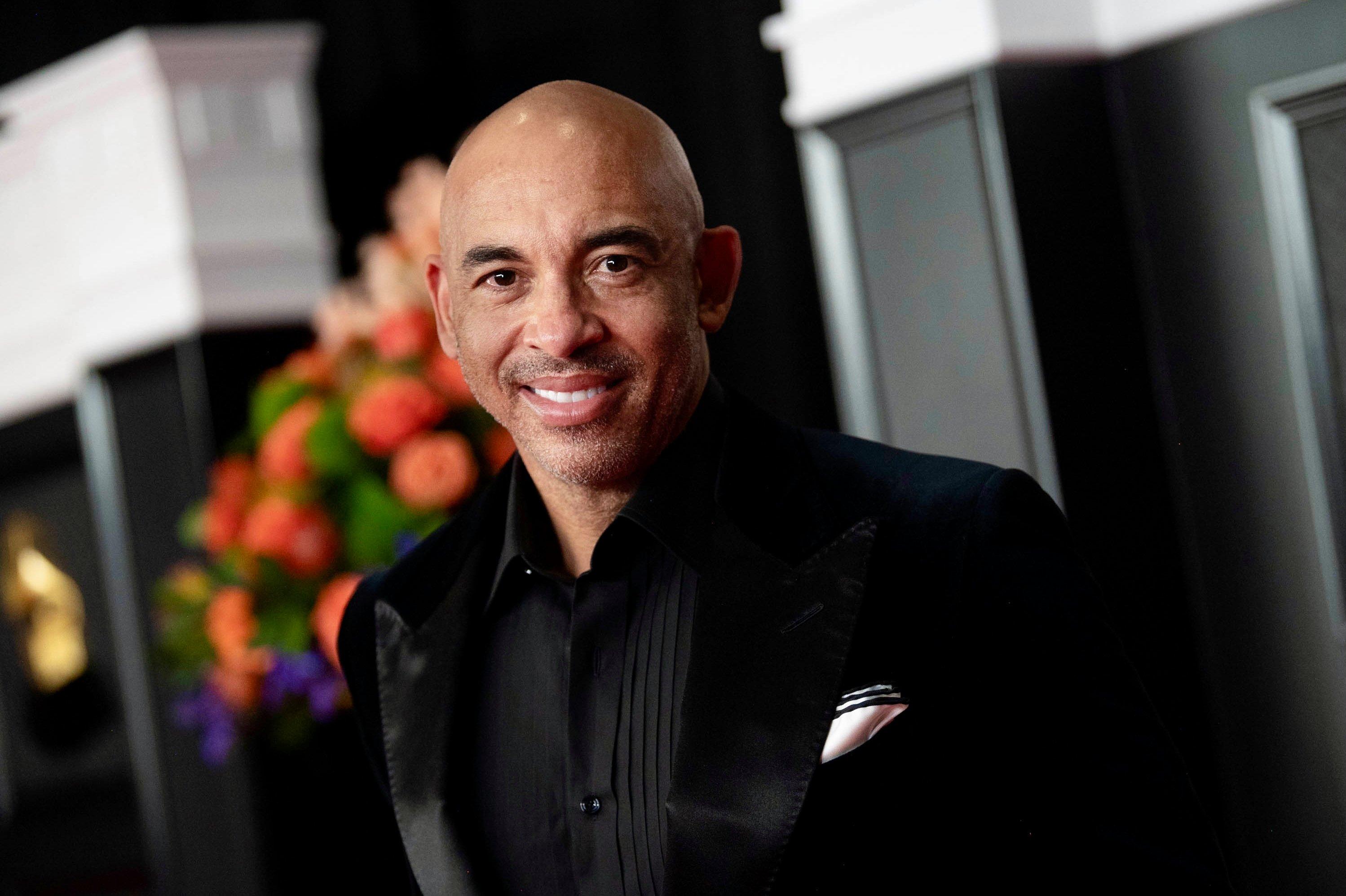
*Harvey Mason jr. Photo: Emma McIntyre by Getty Images*
Harvey Mason jr.
CEO, The Recording Academy
Harvey, you’ve spoken extensively about your recent travels to a number of African countries. I’ve got to imagine those trips informed the new Best African Music Performance category.
Absolutely. I’ve done three trips to Africa in the last year. I spent a lot of time listening to and hearing from the music community there. There’s such a massive amount of talent and creativity in that region, and we’re starting to see that penetrating the U.S. market and global market — with Afrobeats and Amapiano and other African genres becoming so popular, driving the sound, and dictating the creativity of artists that are not from that region. You’re seeing collaborations and features happening around those genres, which are becoming so popular and are moving the music landscape.
During my time there, I heard from the African music industry, and they all felt like they weren’t being represented in our GRAMMY Awards process. It was an eye-opening experience to see the love and respect for the GRAMMYs and the Recording Academy from the continent of Africa. But it was also disheartening to think that they weren’t being heard in our process.
That’s why I’m really excited about this new GRAMMY category. And I’m really looking forward to seeing what kind of submissions we get and what impact that has on the genres coming from Africa.
It’s great to see the Recording Academy’s purview spanning the entire African continent — not just popular sounds like Afrobeats or Afro Pop.
It was important for us to make sure we tried to include as many genres as possible, knowing that we were not going to be able to put all the genres being created across the continent.
We can’t cover every genre as much as we’d like to and as much as they deserve to be recognized, so this is the first step toward a much bigger, more fruitful journey ahead. And we’re not done as an Academy: We’re making sure that we represent music from that region fairly and accurately.
Read More: Love Burna Boy & Wizkid? Listen To These 5 African Genres
Can you tell me about the deliberations behind the scenes at the Recording Academy that led to the creation of the Best African Music Performance GRAMMY category?
Deliberations were pretty brief and succinct. Everybody acknowledged the importance of the music coming from that region, and everyone was supportive of the idea. The conversation really centered mostly around the nomenclature — what we were going to call the category — and how we were going to ensure that we represented all the different music that’s coming from the region fairly, accurately and inclusively.
Once we realized we couldn’t cover everything, we tried to find the sweet spot for making sure that the category was named properly and fairly and in a way that would invite participation from as many people as possible.
Where would you like to see the Recording Academy go from here, as per its embrace of African music from across the continent?
I’d love to see the Academy continue to make sure that we’re respecting all music, not just Western music. And I’d like to see us continue to evolve as we have been these past three years: remaining fluid and accommodating, quickly and swiftly, as new genres and new markets emerge.
We need to go deeper and in more detail within different genres of music. We know there are multiple different types of music — hundreds of genres, in fact — coming from Africa and from all 54 countries on the continent. I’d love to see us be able to honor even more music from Africa and other areas of the world.
The future of the Recording Academy is going to build on equity. We’re not just honoring music breaking in our country — we’re celebrating music from around the world.
Read More: 7 Incredible Sets From AfroNation Miami: WizKid, Uncle Waffles, Black Sherif & More

*Ghazi. Photo: Jessica Chou*
Ghazi
CEO/Founder, EMPIRE
Tell me about the deliberations behind the scenes at the Recording Academy that led to the creation of the Best African Music Performance category.
When we first had Shawn Thwaites, [the Recording Academy’s] genre manager for Global Music & African Music, at our EMPIRE headquarters in San Francisco, we discussed the potential for this category to come to life. Not only has African music exploded on a commercial level, which warrants recognition, but on a cultural level, its impact has been immeasurable. Behind the scenes, we focused on sharing information with the Recording Academy that would be valuable to their committee deciding on this category, the consumption and the growth, specifically in North America.
One could spend several lifetimes exploring the diversity of African music. How do you begin to boil all those sounds down to a small list of nominees?
I think we’ll see expanded categories in African music in the years to come, but this is a great start toward recognizing the merits and impact of African music. In the meantime, we look forward to working with the Recording Academy in putting together programming to help educate the current membership on the nuances and history of African music.
This new GRAMMY category shows how the Recording Academy is truly a global entity with a global mission to support all music creators and professionals. Where would you like to see the Recording Academy go from here in its global mission to support the international music community?
This is an exciting time in music. Fans are able to access any genre of music from any region of the world at any time. With that, it’s inevitable that we’ll see large-scale growth in international music in the coming years. It’ll be imperative for the Recording Academy to establish a footprint, large or small, on every continent to work side by side with growing music communities around the world and support these artists and creators.
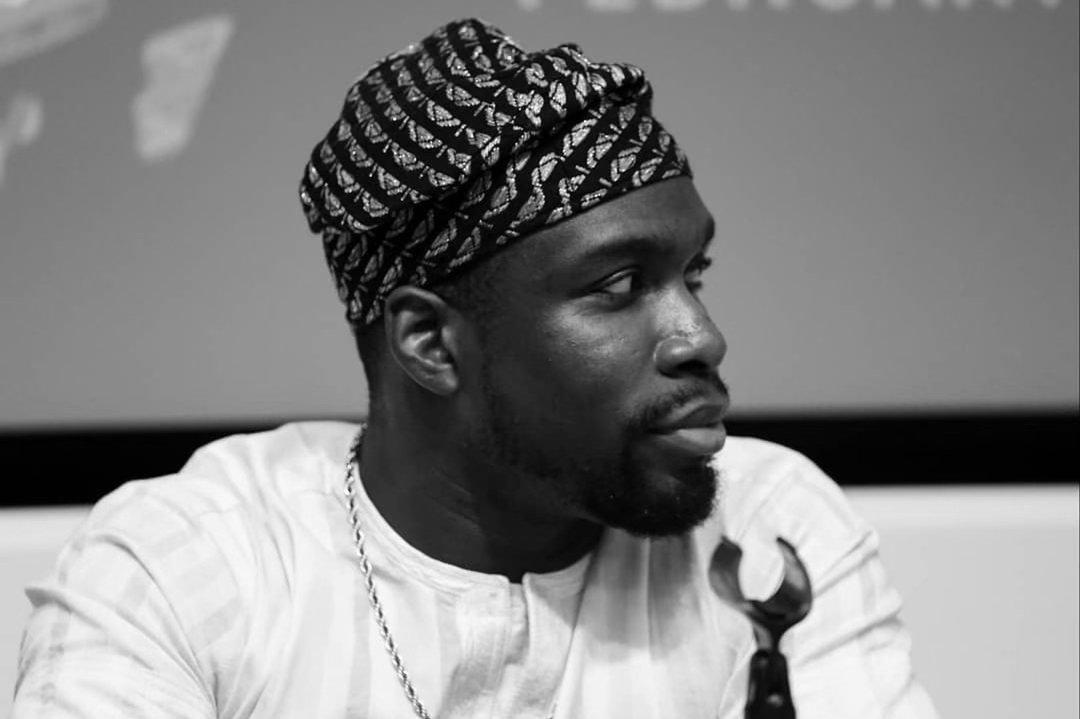
*Tunde Ajaba-Ogundipe. Photo: Harvard Business School*
Tunde Ajaba-Ogundipe
GM, African strategy at Sony Music
Co-founder, No Wahala
Tell me about the deliberations behind the scenes at the Recording Academy that led to the creation of the Best African Music Performance category.
With the Latin community as a reference, we knew that if we could assemble a group of like-minded folks to push the inclusion of diverse African music categories using a long-game strategy, we would be able to try, learn from the misses, optimize, and try again until we found ourselves reaching our goal. We successfully saw that change greenlighted, with the [Best World Music Album] category officially being renamed to [Best Global Music Album] [in 2020].
Throughout the process of appealing to the Recording Academy to have this category added, a key factor was finding like-minded individuals within the organization to form cultural bonds, exchange knowledge, and champion the goal as a unit. We formed think tanks with key allies across the African, American and U.K. music industries, like Angelique Kidjo, Don Jazzy, John Legend, Juls, Riggs Morales, Sevi Spanoudi, Joy Wayodi, and Falu.
After the inclusion of the [Best Global Music Album] category in 2020, we were able to gauge how to collectively push for more inclusion via African music categories. I am grateful that everyone really rallied together to reach the end goal.
In general, what does the international music industry need to do to elevate and honor the African music community and industry?
I always remain an optimist [regarding] African music continuing to influence the global pop scene. With recent waves of music dominance from the current generation of African stars, like Burna Boy, CKay, Oxlade, Black Coffee, etc., I’ve witnessed many in the industry [mistakenly believe] that similar waves of global recognition of African Music haven’t occurred in the past across genres.
I think it means more because of the way music is consumed today and how the African music business — and the business overall — has evolved. It’s a lot more challenging to break acts with the attention spans of listeners being more finite now than ever before. Yet, African labels are finding their way into the current landscape.
That said, we should recognize the African icons of the past generations, like Babatunde Olatunji, Sade Adu, Ali Farka Touré, Angélique Kidjo, Ladysmith Black Mambazo, Seal, Sikiru Adepoju, Youssou N’Dour, RedOne, and more, for their wins across GRAMMY categories in the past. It’s hard to imagine African music having this moment across the industry without those pioneers opening the doors in an era where it was harder than ever to gain a global audience. They still laid the groundwork, which inspired this generation — directly and indirectly.
[The Recording Academy has] always recognized the opportunities for amplification of African artists, songwriters and producers. I’m a direct witness to their advocacy, championing, and, in some cases, direct education in the past few years to ensure that gaps are bridged between African and diaspora communities and the organization. I’m excited to see the evolution that lies ahead for African music within the Recording Academy and beyond.

*Shawn Thwaites. Photo: Reid Fowler*
**Shawn Thwaites**
Project Manager, Awards, The Recording Academy
Why is it important that the Recording Academy created the Best African Music Performance category?
African music has been a direct influence on America [and other countries]. The unique musical styles and traditions of Africa are too undiluted not to have its own category. Giving African music its own category would highlight and celebrate the diversity and richness of Africa. This is a great step forward!
Can you tell me about the deliberations behind the scenes at the Recording Academy that led to the creation of the Best African Music Performance GRAMMY category?
We met with African music leaders, including artists and executives, and had in-depth conversations on ideas like the name of the category. This collaboration and discussion was a valuable way to ensure that the category for African music was created and remains healthy.
**One could spend several lifetimes exploring the diversity of African music. How do you begin to boil all those sounds down to a small list of nominees?**
The Recording Academy is a peer membership organization. Tracks will be considered by the merit of a song among the voting membership, regardless of its country of origin. This process includes a listening component where screeners are carefully selected to screen the music.
Our product eligibility period for the 2024 GRAMMYs is Oct. 1, 2022, through Sept. 15, 2023. Eligible tracks/singles include vocal and instrumental performances, with strong elements of African cultural significance that blend a stylistic intention, song structure, lyrical content and/or musical representation found in Africa and the African diaspora.
**In general, what does the international music industry need to do to elevate and honor the African music community and industry?**
By celebrating the diversity of African music, we can spread awareness through cultural exchange: more collaborations between artists of different genres and more artist relations between labels and executives in America.
Where would you like to see the Recording Academy go from here in its global mission to support the international music community?
By recognizing the talent and creativity of musicians from diverse backgrounds, the Recording Academy can promote greater understanding and create a more inclusive and diverse global music community.

*Rikki Stein. Photo: Chantal Azari*
Rikki Stein
CEO, Kalakuta Sunrise LTD, a holding company for Knitting Factory Records and Partisan Records
Why is it important that the Recording Academy created the Best African Music Performance category?
Stein: I have long considered Africa as having a tremendous contribution to make in the world, which has yet to be seen and fully appreciated. One day, one day!
Meanwhile, the simplest and most easily accessible aspect of Africa’s attributes is its cultural treasure, within which music takes pride of place. In clubs and venues throughout the world today, music from Africa is being enjoyed. Good reason, indeed, for including Best African Music Performance as a GRAMMY category!
One could spend several lifetimes exploring the diversity of African music. How do you begin to boil all those sounds down to a small list of nominees?
Stein: There are certainly a plethora of young [artists] vying for well-earned attention, but let’s not forget the previous generation of artists whose music continues to delight fans across the globe.
As Fela Kuti’s friend, manager and defender of his legacy, I derive great satisfaction, 25 years after his passing, from seeing the millions of monthly streams of his music. And when I look more deeply into where people are listening to his 50-album catalog, I discover it’s everywhere! Khazakstan, Jakarta, Reykjavik, Osaka, as well as the more predictable U.S. and European destinations. So let’s not forget the golden oldies!
In general, what does the international music industry need to do to elevate and honor the African music community and industry?
Stein: As a promoter of African music for over 50 years and having spent many of those years banging my head against a glass ceiling, I’m able to give a sigh of relief at seeing serious cracks appearing in that ludicrous structure which — who knows — may well even burst asunder and be no more!
So, let’s big up the GRAMMYs and the Recording Academy for making this major contribution to its demise.
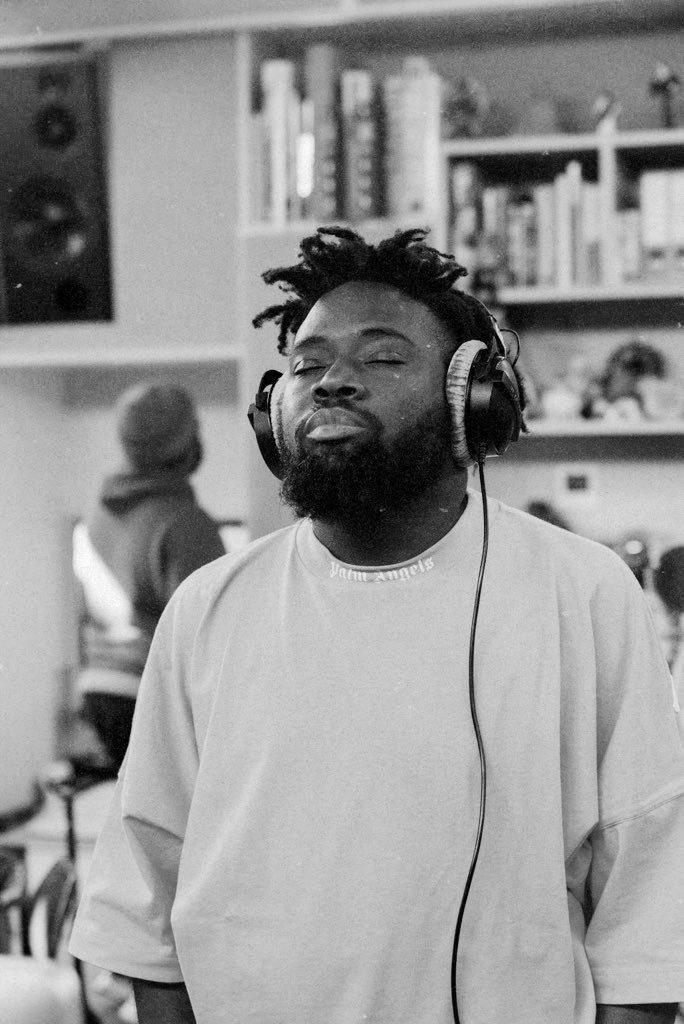
*Julian “Juls” Nicco-Annan. Photo: Dbcaptures*
Julian “Juls” Nicco-Annan
Record producer, DJ and songwriter
Why is it important that the Recording Academy created the Best African Music Performance category?
I think it is an amazing addition to the category, given the fact that Africa has a massive impact on music and culture worldwide. It’s important for the roots of African culture and sounds to be showcased on a higher stage such as the GRAMMYs to show the world how powerful and influential our sound is. African pop music and culture have been on the steady rise for the last 15 years. It’s great to see the GRAMMYs finally take the step to make this happen for us and the continent.
One could spend several lifetimes exploring the diversity of African music. How do you begin to boil all those sounds down to a small list of nominees?
This is where it gets tough. People love to look at West Africa and South Africa predominantly because currently, those sides of the continent are at the forefront.
But East Africa has given birth to some incredible talent. It’s important for Africans to push forward to become Recording Academy members, so they can have a voice to push their talent. Experts from different sides of the continent have to advocate. Representation is so important.
In general, what does the international music industry need to do to elevate and honor the African music community and industry?
I think a bit more research into who has been shaping the sound over the last few years is important. Engaging with many who have been documenting the journey of the genre [is important] as well. An African GRAMMYs show would be incredible. Latin America has one, and it has been incredibly successful over the years.
This new GRAMMY category shows how the Recording Academy is truly a global entity with a global mission to support all music creators and professionals. Where would you like to see the Recording Academy go from here in its global mission to support the international music community?
We need more members and more seminars to educate the artists and management back home about the [GRAMMY Awards] process and actually explain things properly. There’s a massive disconnect — that gap should be bridged.
What are some African music albums, songs or artists you’re personally enjoying right now and would like to shout out?
At the moment, Davido dropped an incredible body of work, Timeless, with the hit record “Unavailable.” Worlasi from Ghana dropped a very in-depth and incredible album called The.rap.y, which touches on social issues men and women face; very deep album. I released a single with South African sensation Ami Faku called “Terrified” and J Hus’ new record, “Who Told You.”

*Mobolaji Kareem. Photo courtesy of EMPIRE*
**Mobolaji Kareem**
Regional Head West Africa, EMPIRE
Why is it important that the Recording Academy created the Best African Music Performance category?
Africa has a rich and vibrant history with 54 diverse countries. There are just as many, if not more, genres of music across the continent, so it’s viable to have this category as a starting point that can help define the music coming from here. With this category, a lot more artists/songs … can now have their own stage to compete and be celebrated globally.
In general, what does the international music industry need to do to elevate and honor the African music community and industry?
The African music landscape has exploded globally and needs to continue to be exposed to the masses to help promote inclusivity and appreciation for the art.
Every mainstream music or sporting event, radio station, and beyond should have African music as part of the program to allow for maximum impact. African voices also need to be represented and involved in the decision-making, so this is a crucial step taken by the Recording Academy to give the music coming out of this continent the exposure and reach it deserves.
What are some African music albums, songs or artists you’re personally enjoying right now and would like to shout out?
Burna Boy – Love Damini
Asake – Work of Art
Black Sherif – The Villain I Never Was
Bad Boy Timz – No Bad Boy, No Party
7 Incredible Sets From AfroNation Miami: WizKid, Uncle Waffles, Black Sherif & More
